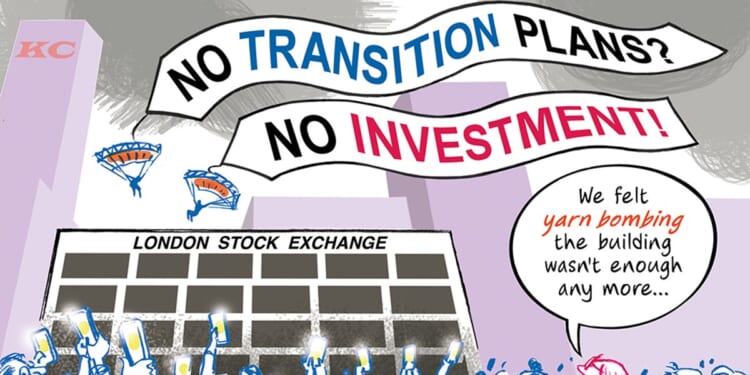EVERY institutional investor is guided by what matters to its clients. But when those clients are churches, cathedrals, parish councils, and dioceses, those values are imbued with something older and more fundamental than politics or special interests: they are guided by faith. For many churches, Christian charities, and religious organisations, concern for our natural world and the devastation of climate change have emerged as among the most important issues influencing the way in which they manage their money.
The start of COP30 this week and the rise of media coverage about environmental issues provide a reminder that the climate crisis presents risks on an unprecedented scale. The human cost of climate breakdown is already emerging in the form of extreme weather events, destabilised food systems, and deepening inequality. Meanwhile, the delicate and complex treasures of the natural world are disappearing, so that many of the wonders of creation will be lost to future generations.
The financial system is one of the key levers that can play a part in either worsening or averting the effects of man-made climate change. It is only natural, then, that churches and charities care deeply about whether their investments help or hinder the mission to protect nature.
Beyond the clear moral imperative, it is simply good business sense for companies to consider how their activities affect the climate, and to ensure that they are resilient in relation to the effects of climate change. This has led CCLA, which has a long history in investing for churches, charities, and local authorities, and the Local Authority Pension Fund Forum (LAPFF), which represents approximately 90 per cent of local-authority pension funds in the UK, to write to the chairs of FTSE 100 businesses asking them to present their “climate transition plans” to shareholders.
CLIMATE transition plans are strategic roadmaps created by businesses to plan how they will move to a low-carbon, climate-resilient operating model over a given timescale. LAPFF and CCLA are calling on companies to present these transition plans at their annual general meetings, and to allow shareholders to vote on them, along with many other topics that are put to shareholder votes.
Shareholders can then vote to support the transition plans — or not, if they decide that the plans are unrealistic, under-ambitious, or insufficiently detailed. It is a mechanism for transparency and accountability, allowing shareholders such as CCLA to have a voice and to encourage environmental responsibility.
So far this year, only five FTSE100 companies have provided climate-transition-plan votes for shareholders: a troubling decline from the 14 companies that did so in 2022. With this letter, the signatory investors, who together represent £3.1 trillion of assets under management, are seeking accountability from the companies in which many of them invest, and are encouraging businesses to take a positive approach towards planning for and shaping the low-carbon future.
In October, a report from 160 scientists around the world, The Global Tipping Points Report 2025, suggested that the first climate tipping point had been hit with the widespread dieback of warm-water coral reefs. The damage of this and other climate tipping points on human societies will be worsened by each increment of unchecked global warming.
NOW, as politicians and industry representatives in some quarters are abandoning their climate commitments, and some communities are losing faith in mankind’s ability to face this difficult challenge co-operatively, faith-based organisations have emerged as strongholds of values that are resilient amid political vicissitudes.
This is fundamentally a question of community. Recognising the human duty to try to avert disaster in the communities most vulnerable to climate changes — those in low-lying coastal areas and those vulnerable to extreme heat distress or prone to devastating storms — means recognising our fellowship with other human beings, however far away or different from us they may be.
The UK itself is not shielded from harm related to the climate: the health and well-being of the nation’s woodland, farmland, air, and waterways are reliant on the careful stewardship of our environment.
Community-minded investors such as CCLA and LAPFF understand that successful companies rely on healthy communities to thrive. This letter, signed by more than 50 other investors, is their clarion call to the UK’s largest companies to be accountable for how they will play their part in reducing the enormous risks posed by climate change to the economy, societies, and the planet, which all of God’s creatures call home.
James Corah is head of sustainability at CCLA, which is authorised and regulated by the Financial Conduct Authority.

















